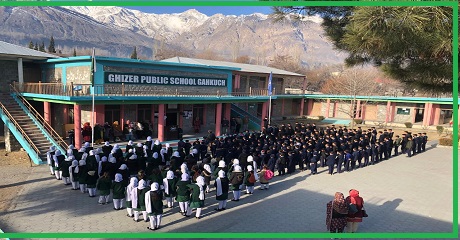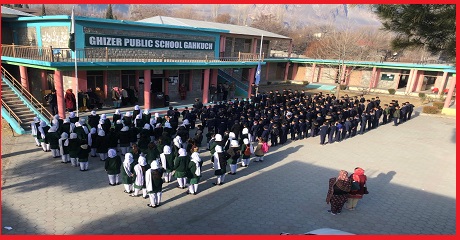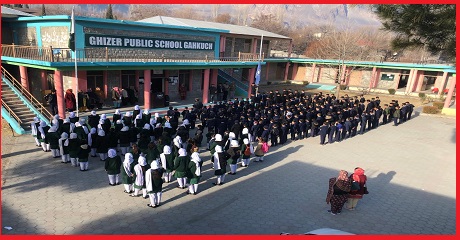Inroduction
Formal education is a structured and organized system of learning that takes place within institutions, typically starting from early childhood and extending into adulthood. It is a foundational component of the educational landscape, providing a framework for the acquisition of knowledge, skills, and values. In this exploration, we delve into the key aspects of its historical evolution, its role in society, and the challenges and opportunities it presents.
Historical Evolution:
The roots of formal education can be traced back to ancient civilizations, where education was often reserved for the elite. In ancient Greece, for example, itwas primarily focused on philosophy, mathematics, and physical fitness. Over the centuries, as societies evolved, this became more widespread, with religious institutions and monasteries playing a significant role in early education.
The Renaissance marked a turning point, bringing about a renewed interest in classical learning and paving the way for the establishment of formal schools. The industrial revolution further accelerated the need for a standardized education system to meet the demands of an increasingly complex and industrialized world. As a result, the 19th and 20th centuries witnessed the establishment of compulsory education laws in many countries, marking the formalization of education as a societal norm.
Key Characteristics of Formal Education:
- Structured Curriculum: This follows a structured curriculum that outlines the subjects, topics, and learning objectives for each grade or level. This curriculum typically designed to cover a broad range of disciplines, providing students with a well-round education.
- Institutional Setting: Unlike informal or non-formal learning, formal education takes place within established institutions such as schools, colleges, and universities. These institutions adhere to specific rules, regulations, and standards to ensure the quality and consistency of education.
- Certification and Credentials: One of the distinguishing features of formal education is the issuance of certifications and credentials. Students receive diplomas, degrees, or certificates upon successful completion of specific educational levels. These credentials often serve as formal proof of the individual’s educational achievements and qualifications.
- Qualified Instructors: These educators play a crucial role in guiding students through the learning process and assessing their progress.
- Assessment and Evaluation: This involves systematic assessment and evaluation of students’ performance. This may include exams, quizzes, projects, and other forms of evaluation to measure the students’ understanding of the material and their overall academic progress.
- Standardized Learning Hours: It is typically adheres to standardized learning hours and academic calendars.

Role in Society:
- Human Capital Development: Formal education plays a crucial role in developing human capital by equipping individuals with the knowledge and skills necessary for personal and professional success. A well-educated populace contributes to economic development and innovation.
- Socialization and Cultural Transmission: This is serves as a primary agent of socialization, introducing individuals to societal norms, values, and cultural heritage. It fosters a sense of community and shared identity, contributing to social cohesion.
- Equalizer of Opportunities: It is an equalizer of opportunities, providing individuals from diverse backgrounds with a chance to acquire knowledge and skills and can lead to upward social mobility.
- Preparation for Citizenship: Education plays a vital role in preparing individuals for responsible citizenship. It instills civic values, promotes critical thinking, and encourages active participation in democratic processes.
- Economic Contribution: It is closely linke to economic productivity. A well-educated workforce is essential for technological advancements, innovation, and economic competitiveness on a global scale.
- Research and Innovation: Higher institutions, a significant component of it, serve as hubs for research and innovation. They contribute to the advancement of knowledge, the development of new technologies, and the expansion of intellectual discourse.
Challenges and Opportunities:

- Inequality in Access: One of the persistent challenges of formal education is the inequality in access. Economic, geographical, and sociocultural factors can limit access to quality education, perpetuating social disparities.
- Rote Learning vs. Critical Thinking: Thsi systems, at times, face criticism for emphasizing rote memorization over critical thinking. Striking a balance between foundational knowledge and the ability to analyze and synthesize information is an ongoing challenge.
- Adaptation to Changing Needs: The rapid pace of societal and technological change requires formal education systems to adapt continuously. Ensuring that curricula remain relevant and responsive to evolving needs is a perpetual challenge.
- Standardized Testing Concerns: The reliance on standardized testing as a primary assessment tool has raised concerns about its ability to capture the full range of students’ abilities. The potential for creating a narrow focus on exam-oriented learning.
- Technological Integration: While technology presents opportunities for enhancing the learning experience. Integrating it effectively into this systems requires careful planning and investment in infrastructure and teacher training.
- Globalization and Cultural Sensitivity: It is systems need to balance the global and local aspects of education. Ensuring cultural sensitivity and promoting a global perspective without eroding local identities is a complex challenge.
Conclusion:
Formal education stands as a cornerstone in the pursuit of knowledge, personal development, and societal progress. Its structured and organized approach, institutional setting, and emphasis on certification contribute to the shaping of individuals and communities. While facing challenges related to access, relevance, and adaptability. Formal education continues to play a pivotal role in fostering human potential. It contributing to the cultural, social, and economic fabric of societies worldwide. As we navigate the complexities of the 21st century, the ongoing evolution of formal education remains critical to addressing. The needs of a rapidly changing global landscape and preparing individuals for the challenges and opportunities that lie ahead.

hic dignissimos omnis aut et quaerat hic ut assumenda. quia porro vero esse voluptatibus impedit ab accusantium rerum unde. porro doloremque repellendus sed et in nulla rerum error ut consequuntur sit
rerum voluptates qui qui et dolor beatae beatae in. et at inventore iusto sed eum sunt placeat perspiciatis qui aut sunt. nostrum ea tempora ut quis occaecati ex reprehenderit nisi ipsum est provident
I don’t think the title of your article matches the content lol. Just kidding, mainly because I had some doubts after reading the article.
Can you be more specific about the content of your article? After reading it, I still have some doubts. Hope you can help me.
Your article helped me a lot, is there any more related content? Thanks!
Your article helped me a lot, is there any more related content? Thanks!
Your point of view caught my eye and was very interesting. Thanks. I have a question for you.
Your point of view caught my eye and was very interesting. Thanks. I have a question for you.
Your article helped me a lot, is there any more related content? Thanks!
glzvdd
kbfxqz
m5j3fr
It?¦s really a great and useful piece of info. I am glad that you just shared this useful information with us. Please keep us informed like this. Thank you for sharing.
Thanks for sharing. I read many of your blog posts, cool, your blog is very good.
a73z7o
I don’t think the title of your article matches the content lol. Just kidding, mainly because I had some doubts after reading the article.
me encantei com este site. Pra saber mais detalhes acesse o site e descubra mais. Todas as informações contidas são conteúdos relevantes e exclusivos. Tudo que você precisa saber está está lá.
I don’t think the title of your article matches the content lol. Just kidding, mainly because I had some doubts after reading the article.
Your point of view caught my eye and was very interesting. Thanks. I have a question for you.
Hello, you used to write excellent, but the last few posts have been kinda boringK I miss your tremendous writings. Past few posts are just a little bit out of track! come on!
Hello.This article was really interesting, especially because I was looking for thoughts on this subject last Wednesday.
Some really wonderful information, Sword lily I found this.
Thanks for sharing. I read many of your blog posts, cool, your blog is very good.
1wwy5i
Simply a smiling visitant here to share the love (:, btw great pattern. “Better by far you should forget and smile than that you should remember and be sad.” by Christina Georgina Rossetti.
Whats Happening i am new to this, I stumbled upon this I have found It positively helpful and it has helped me out loads. I am hoping to contribute & help other customers like its helped me. Great job.
z88qc2
https://t.me/s/Official_1win_kanal/773
https://t.me/s/Webs_1WIN
Your point of view caught my eye and was very interesting. Thanks. I have a question for you. https://www.binance.com/join?ref=P9L9FQKY
Thanks for sharing. I read many of your blog posts, cool, your blog is very good.
I like this post, enjoyed this one thanks for posting. “The universe is not hostile, nor yet is it unfriendly. It is simply indifferent.” by John Andrew Holmes.
Really clean web site, thankyou for this post.
You are my inhalation, I have few web logs and very sporadically run out from to post .
Reading your article helped me a lot and I agree with you. But I still have some doubts, can you clarify for me? I’ll keep an eye out for your answers.
I am glad to be a visitor of this unadulterated blog! , thankyou for this rare info ! .
Insightful piece
You really make it seem so easy with your presentation but I find this topic to be actually something that I think I would never understand. It seems too complex and extremely broad for me. I’m looking forward for your next post, I will try to get the hang of it!